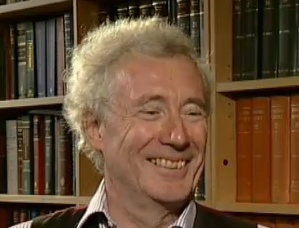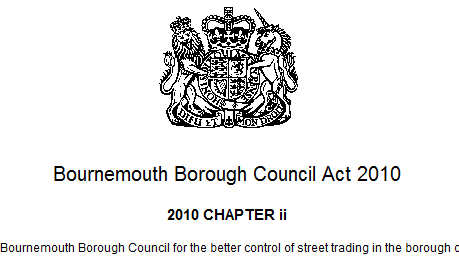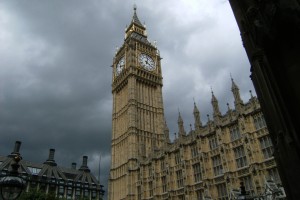Law Weblog
Five Minutes With: Jonathan Sumption QC
Saturday 31 July 2010 at 3:38 pm | In News | Post CommentFive Minutes With: Jonathan Sumption QC
——————————————————————————————————————
Law reform – one prosecution in 800 years justifies old offence
Saturday 31 July 2010 at 7:29 am | In News | Post Comment A Church of England vicar, Reverend Alex Brown, was found guilty this week of carrying out the biggest ever fake wedding involving 360 illegal immigrants.Brown is the only vicar in 800 years to be convicted of failing to read out the banns (asking the congregation if they knew of ‘any just cause or impediment’ why two people may not marry).
At St Leonards, East Sussex, Brown married up to eight couples a day between 2005 and 2009, once married they were able to obtain a visa to stay in Britain.
In 2004, new rules were brought in to bring vicars into line with registrars who were required to make thorough checks. But Brown switched to the ancient banns method of marriage rather than using the common licence, which meant he was able to conduct ceremonies in secret.
The church tried, and failed, to deal with the matter internally. Home Office officials noticed the startling number of immigration applications from foreign newlyweds listing Brown’s church and called in the police.
The Law Commission often cites an absence of prosecutions as the reason for repealing legislation but in this case this ancient provision has proved its worth. Under the Marriage Act 1949 the penalty is 14 years imprisonment.
Read more, here
At last, a statute book – after 800 years
Friday 30 July 2010 at 8:24 am | In News | Post Comment The Ministry of Justice has launched legislation.gov.uk, which brings together every single piece of UK legislation, from Magna Carta (and before) to the present day, in one place, for the first time.The UK is the first country in the world to open up its statute book in this way. Legislation.gov.uk is a public website and it is free. Until now, the phrase “the statute book” was mere usage, now it is a reality.
The website went live on 29 July 2010; it contains every single law ever made in the UK, including all revisions throughout legal history since 1267. The site will be updated every day at 2.30pm.
The new website cost £419,000 to create from last year’s financial budget. It consists of 6.5 million web pages and a further 6.5 million PDF documents.
The site makes it easy for people to use the data to create mobile phone apps or add it to their own websites.
The Office of Public Sector Information and the Statue Law Database’s will be shut down.
Broccoli and tomato patents – European Patent Office
Tuesday 27 July 2010 at 3:09 pm | In News | 1 Comment This week, at the European Patent Office in Munich, the appeals board is debating whether to allow patents on broccoli and tomatoes.Broccoli contains cancer-fighting (anti-carcinogenic) properties and in 2002, a British company Plant Bioscience Ltd was granted a patent by the European Patent Office for a method it developed which identified the anti-carcinogenic properties of broccoli, enabling the company to selectively breed plants with a high concentration of this property.
But the patent also covered the plants selected and produced by this method, not just the technical process itself, essentially giving the British company a European patent on broccoli.
Opponents say this is essentially a biological process is not patentable.
Tomatoes too have been patented. In 2000 an Israeli company that found a way to breed tomatoes with less water was awarded a patent. Opponents including Greenpeace have appealed against these patents.
Similar patents already exist, but the broccoli patent will set a precedent and affect future cases regarding plant or animal patents.
The European Patent Office has responsibility only to determine whether a new technology is innovative and applicable enough to be given a patent, the broccoli breeding techniques are advanced enough to warrant patent protection.
It is not the patent office’s responsibility to assess social, economic, or ecological implications, which means new European regulations specifically banning patents like these would be needed to stop the broccoli initiative.
The appeals board should decide on the broccoli patent this week, but their decision will probably not be made public until later in the year.
Computer software predicts offences
Sunday 25 July 2010 at 8:08 am | In News | 2 CommentsThe Guardian reports that two British police forces have begun trials of computer software which predicts where and when crimes will be committed.
The system, known as Blue CRUSH (Criminal Reduction Utilising Statistical History) evaluates patterns of past and present incidents, then combines the information with a range of data including crime reports, intelligence briefings, offender behaviour profiles and even weather forecasts. This is used to identify potential hot spots and flashpoints, so police forces can allocate resources to areas where particular crimes are most likely to occur.
Successful long-term trials in Memphis, Tennessee, where the police department credits Blue CRUSH as the key factor behind a 31% reduction in overall crime and a 15% fall in violent crime. The system has also been credited with improving morale among officers of the Memphis police by boosting arrest rates and helping them to feel as if they are “making a difference”.
Guardian report, here
Trials without juries ‘must be last resort’
Sunday 25 July 2010 at 8:05 am | In News | Post Comment The Lord Chief Justice has ruled that trials without juries should be only used as a “last resort” in serious criminal cases; and then only where “a real and present danger” of jury tampering was certain.This effectively makes trials without juries exceptional, unless a judge discharges a jury during a trial (for example because there has been jury tampering), he can then deliver a verdict on his own.
There has been only one such trial without a jury since 1641, four armed robbers were jailed in March 2010, after jury tampering at a previous trial,
The appeals heard this week were against pre-trial rulings of Crown Court judges, so these trials will go ahead with juries, despite fears from the judges that there were “real and present dangers” of jury tampering.
Jury trial is a fundamental constitutional right and its origins can be seen in the Magna Carta in 1215, but jury trials did not start then.
However, the right was limited by the Criminal Justice Act 2003 to allow non-jury trials where there was a “real and present danger” of jury tampering and any protective measures were considered inadequate.
Passage of legislation, a rare variation on the process
Tuesday 20 July 2010 at 7:48 am | In News | Post Comment Parliament will pass major legislation by early next week so some schools can be academies by September.The government has taken the unusual step of compressing the parliamentary process by taking the committee stage in the Commons. It means MPs will get just five hours to debate the proposed laws. Ministers usually reserve such a compressed process for anti-terror laws and constitutional matters. Although in 1997, Labour used the same method to push through legislation to scrap subsidised places at independent schools.
The proposed legislation will allow schools to apply to opt out of local authority control and become independent academies, directly funded by central government.
The Academies Bill has already had 22 hours of committee debate in the House of Lords, and another nine hours of report debate.
Fifteen hundred schools have expressed an interest in becoming academies.
Ban on full-face veil spreads
Tuesday 20 July 2010 at 7:16 am | In News | Post Comment This week, Syria has banned the wearing of a full-face veil at university campuses as the practice runs counter to the academic values and traditions of Syrian universities.In 2009, Egypt barred female students from wearing the full-face veil.
Earlier this month, France’s lower house of parliament overwhelmingly approved a bill that would ban wearing the Islamic full veil in public. The Senate must ratify it in September to become law.
Belgium is at a similar stage of passing a bill to ban clothing that hides a person’s identity in public places, although it does not specifically refer to the full-face Islamic veil.
Legal training getting tough
Monday 19 July 2010 at 5:24 pm | In News | Post Comment Law firms expect 12% fewer vacancies for trainee solicitors this year, against an average of 6.9% across graduate recruiters. The number of places on the Legal Practice Course has increased by nearly 70%, to 14,482 while the number of training contracts has only risen by 20% to 5,809.Still some law firms pay the highest salaries to graduates according to the Association of Graduate Recruiters.
The compulsory minimum salary which law firms are required to pay is £18,590 in central London and £16,650 elsewhere. This was introduced to prevent exploitation and to promote diversity.
Last week, the government scrapped training grants for prospective legal aid lawyers. The Ministry of Justice said that while the legal aid training grant scheme was “a laudable idea”, its time had passed, and there are alternative routes into practice, for example through the paralegal route.
Solicitor LPC courses are turning out too many students who are paying around £12,000 for the yearlong course in London.
By contrast, Barristers’ training is changing, following the “Wood Report” in 2008. The Bar Standards Board is piloting an aptitude test for prospective bar vocational course students, which will test analytical and critical reasoning, as well as fluency in English, with the aim of ensuring that only those with a realistic chance of finding a pupillage start the course.
Prospective students hoping to join either branch of the legal profession can expect tough competition.
Lord Judge LCJ astonished at the power of the executive
Friday 16 July 2010 at 2:19 pm | In News | Post CommentThe Lord Chief Justice, Lord Judge in a speech at the Lord Mayor’s dinner for the judiciary made critical comments on the ease with which new laws can be made. He singled out the lack of proper scrutiny by Parliament which has resulted in a shift in the balance of power towards the executive.
He referred to “Henry VIII” clauses which astonished him. The Statute of Proclamations 1539 allowed the King’s (Henry VIII) proclamations to have the same force as Acts of Parliament and these frequently appear in legislation and allow ministers to make subsequent changes that would otherwise require parliamentary approval.
The example he gave was the Banking (Special Provisions) Act 2008, which grants to the Treasury power to disapply any other relevant statute bearing on the provisions of the 2008 Act or indeed any rule of law. Similar powers have also been granted by section 51 of the Constitutional Reform and Governance Act 2010. There had been at least 120 Henry VIII clauses in the last Parliamentary session alone, but no one is collecting data.
His speech is here
Powered by WordPress with Pool theme design by Borja Fernandez.
Entries and comments feeds.
Valid XHTML and CSS. ^Top^









